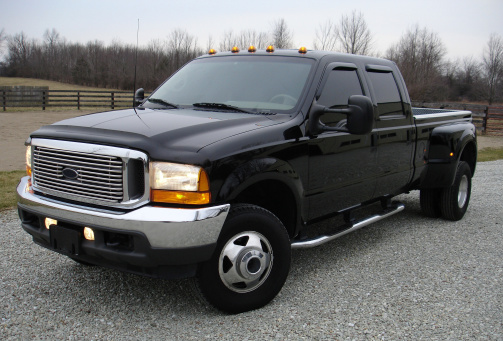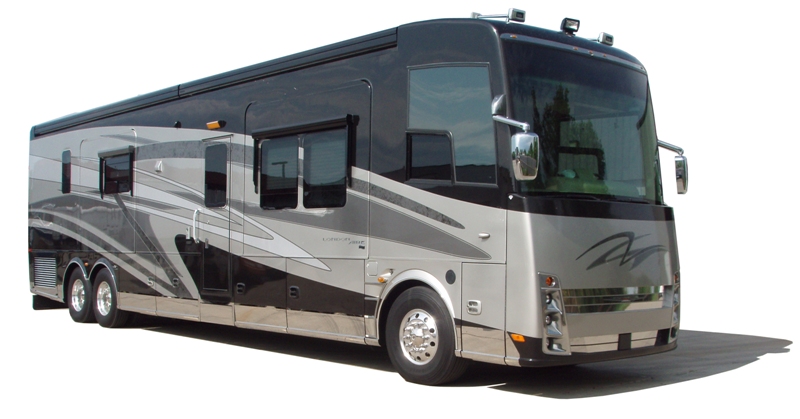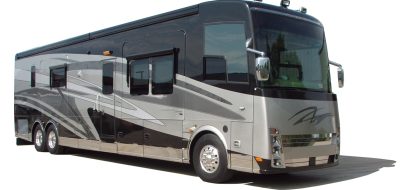Diesel engine etiquette — following a few simple guidelines.
Other than the laughter of children playing in a campground, the most common loud sound is that of the diesel engine. Is it any wonder that people become bothered by any excessive diesel operation?
There are the Class A noisy diesel pushers that fire up their fire-breathing power plant at least a half hour before departing. There are also the fifth-wheel tow pickups that seemingly continue to lap the campground and make more in and out trips than a pizza delivery truck.
While diesel engines are being engineered to run quieter with the likes of developments such as pilot injection, campground diesel etiquette is still needed.
Noisy Culprits

So let’s look first at the noisy diesel pusher sound violator. Diesel pushers are nearly all equipped with air suspension. This air ride requires time for the engine compressor to build air pressure in the air tanks (the wet tank, forward and rear tank reservoirs, and ping tank). These, in turn, must fill the suspension air bags through a group of pneumatic leveling valves. This generally can take several minutes to complete, and failure to reach the proper air suspension ride height and moving prematurely can be very costly. Wheel well body damage, as well as possible driveshaft distortion, can occur if the vehicle is not at the specific run height.
Now, what about the noisy diesel pickup truck? Some of these noisy vehicles can drown out the sound of many of the diesel pushers. Adding to their noise is the frequency of use throughout the day. Unlike the pushers that can be heard during arrival and departure, these vehicles are often used several times a day, and at all hours.
Applying Diesel Engine Etiquette
So, what noisy diesel etiquette should be applied here? Well, the diesel pusher owners should limit their engine run time to just what is needed. Start up when you’re ready to depart, not before your last coffee or final camp clean up and check.
Diesel pickups are the owners’ mode of transportation, therefore must be somewhat tolerated. However, excessive runtime and throttle application should be tempered. If you want to tour the campground, walk. The exercise will do you good. So, go and come as needed, but go direct. Reduce both speed and idle time.
With reasonable diesel etiquette, we can all get along and enjoy the sounds of nature.
Maintain your diesel pusher at a qualified service center.
Peter Mercer — With Some Sound Advice







Anonymous
Another thing. Don’t park in front of a door (business or private) and leave the diesel running. The fumes give a lot of people instant headaches. Shut it off!!
Peter Mercer
The “Diesel Guy” doesn’t get mad he gets even for all that night partying noise. Facts show that the average age of RV owners is going down, so less probably hit the bunk early. But, at 11 pm thing get real quiet! Thanks for your input.
Anonymous
The same applies when the diesel guys goes to bed early so he can get an early start and everyone else is making all kinds of noise late at night because they want to sleep till 9am.
Peter Mercer
Yeh! You gotta’ love that. Add also that with the clatter they now have to shout to each other as they move about the campsite. So…………If the engine that sounds like a concrete mixer half full of doorknobs does not wake you, “Hey Martha, help me move the picnic table from beside the rig!” screamed at a sound level equal to a jet taking off might!
Thanks for your observant comment.
Anonymous
I love the guy who starts it up at 5AM….to get an early start at 6AM…